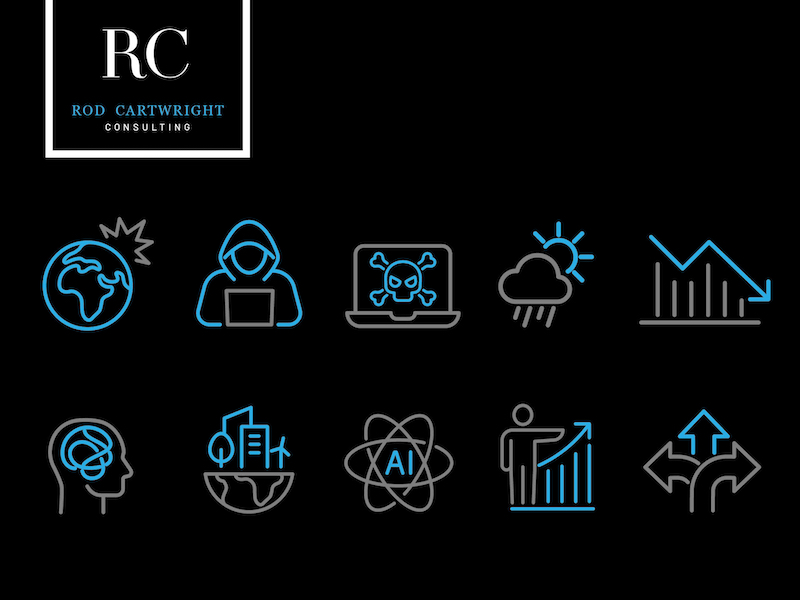Maja Pawinska Sims 14 May 2024 // 7:30AM GMT

LONDON — A new analysis of key global reports on trust, reputation, risk and resilience concludes risk management, crisis preparedness and resilience-building in a time of “permacrisis” can be used as sources of positive value for business and communications leaders.
The second annual ‘Reputation, Risk & Resilience Report’ has been compiled by crisis management specialist Rod Cartwright, and examines eight papers from the past 12 months: the pre-Davos ‘Global Risks Report’ from the World Economic Forum; the G4S Global Security Report; the Gallup State of the Global Workplace report; the BCI Horizon Scan Report; the Conference Board C-Suite Outlook report; the Edelman Trust Barometer; the Page Society’s ‘CCO Views Into 2024’ report; and the Ipsos Reputation Council Report.
Ten themes explored in the report encompass a wide spectrum of global challenges, from the looming shadow of geopolitics, marked by rising tensions, conflicts, and the reshaping of international dynamics, to misinformation and polarisation exacerbating societal divisions and posing significant business threats. At the same time, cybersecurity remains paramount in an increasingly digital world; and the climate catastrophe presents urgent environmental concerns.
In addition, the report covers persistent economic anxieties amid fears of recession and inflation; the long-term human impact of collective global trauma after the pandemic; and ESG principles, which, though prioritised in principle, face challenges in implementation and accountability.
The three final themes look at the need for a human-centred response to rapid advances in science, AI and technological innovation; how businesses are being increasingly called upon to fill governance gaps left by governments; and how to manage all the interconnected risks associated with polycrisis.
Cartwright said: “It has been no small task pulling the 2024 Edition of Reputation, Risk and Resilience together. Nor, candidly, does it paint a particularly rosy picture of the risk landscape over the coming decade.”
He said what stands out in this year’s report is the “interconnected, mutually-reinforcing nature of an ever-growing list of top-tier risks underpinning today’s polycrisis”.
Cartwright said that leaders of all kinds are “struggling to make sense of ever-greater complexity and increasingly intersectional risk. balance reputation and relationships,” but added: “As embedded as the ‘new abnormal’ may feel, the report also provides a crucial reminder that there is real opportunity lurking beneath the sense of permacrisis.
“With the right mindset, preparation and action, leaders can use risk management, crisis preparedness and resilience-building as sources of huge positive value, rather than viewing them as irksome and costly insurance policies.
Cartwright will be running a series of primers and workshops exploring how to apply the report’s findings to individual organisations.



































.jpg)

















